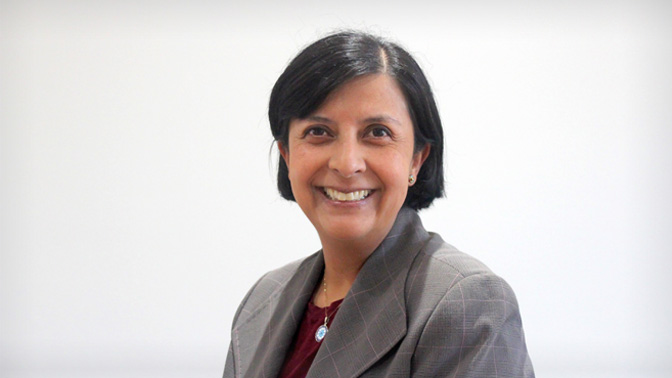
Krembil Research Institute welcomes its newest Scientist, Dr. Olga Lucia Rojas. As an immunologist, her focus is on understanding the role of intestinal immune cells in neuroinflammation and neurodegenerative disorders such as Alzheimer disease and multiple sclerosis (MS).
Recent research led by Dr. Rojas, published in Cell (link is external), uncovered the cellular mechanism behind the body’s response to inflammation in autoimmune conditions. The findings revealed that a type of white blood cell, known as a plasma cell, in the gut can produce an antibody called Immunoglobulin A (IgA) that is key to fighting infection. These IgA-producing plasma cells can travel from the intestines to the central nervous system where they are found to supress brain inflammation during MS flare-ups.
Dr. Rojas is also working with a research team to understand the immune response to SARS-CoV-2. Their recent publication (link is external) showed that SARS-CoV-2 antibodies can be detected in saliva, suggesting the generation of a local immune response against SARS-CoV-2 in the oral cavity after infection. With ongoing collaborations, Dr. Rojas hopes to explore the impact of SARS-CoV-2 infection on neurodegenerative disorders as well.
“Every idea and experiment that we create is a challenge brimming with unanswered questions. I am motivated by my colleagues, students and patients to continue this important research with the aim of improving disease outcomes and quality of life for so many,” says Dr. Rojas.
At Krembil, Dr. Rojas will focus on understanding the role of gut bacteria in the production of IgA-producing plasma cells and the mechanisms by which gut-derived immune cells can impact the development and progression of neurodegenerative disorders. Her research has significant implications for new therapeutic approaches for disorders that currently have no cure, such as Parkinson disease.
“My ultimate research goal is to benefit patients,” says Dr. Rojas. “At Krembil, I will be able to collaborate closely with clinicians, scientists and patients. This unique environment makes it the best place to translate basic research from the lab to a clinical setting.”
Dr. Rojas received her MD and PhD from the Pontificia Universidad Javeriana in Colombia before completing a postdoctoral fellowship in Jennifer Gommerman’s lab in the Department of Immunology at the University of Toronto.




